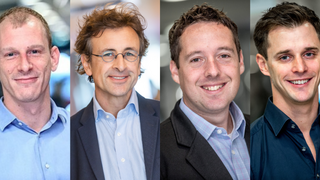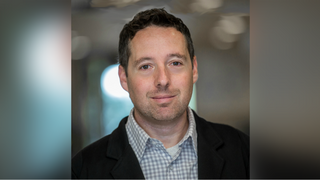Predicting behaviour
Genevsky’s will be collecting brain activity from a small number of people which can help to predict the behaviour of larger groups of people. This research uses neuroscience to better understand the similarities in how people make decisions, and how information can be used to more accurately forecast the way populations behave.
Neuroforecasting refers to the use of brain activity from a laboratory sample to predict the behaviour of larger groups of individuals in the real world. For example, using neural responses to health campaigns to forecast how effective they will be in eliciting behavioural change.
Individual decision-making processes
Advances in brain-imaging design and analysis have allowed investigators to use neural activity to predict individual choice However, an understanding of how individual neural decision processes scale to account for aggregate-level group behaviour has remained elusive. Findings from previous research suggest that specific components of individual decision-making processes might scale to forecast aggregate choice, in some cases even surpassing traditional behavioural measures.
These findings raise the intriguing possibility that not all neural processes that predict individual choice forecast aggregate choice to the same degree. Despite a growing scientific literature demonstrating the capacity of neural data to forecast aggregate level behavior, no research has explored the neural and psychological mechanisms that might explain and account for neuroforecasting.
Dr Alexander Genevsky
“I’m very excited about this grant because it gives me the opportunity to study a topic with the potential to make significant contributions to both academic research and real-world practice specifically in the non-profit and philanthropic sectors,” says Dr Genevsky.
He added he received the fellowship because this a very innovative project on the cutting edge of a growing interdisciplinary field that includes neuroscience, psychology, and applied business practices. “Based upon my experience and past successes with similar projects I believe the committee agreed that I am well-suited to successfully design and oversee this set of studies.”
Dr Genevsky received his PhD in psychology from Stanford University with a focus on decision-making and affective neuroscience. Previously, he also has a bachelor degree in computer science from Binghamton University in New York (SUNY). His research within RSM’s department of Marketing Management explores the social and emotional influences that shape decisions and behaviour. Using behavioural experimentation, market-level data analysis, and neuroimaging, he probes emotional and cognitive reactions to decision-making scenarios and subsequent influences on preference and choice. Relatedly, current projects explore the potential to scale what we learn in the lab to develop models that more accurately describe and predict market-level behaviour in the real world.


